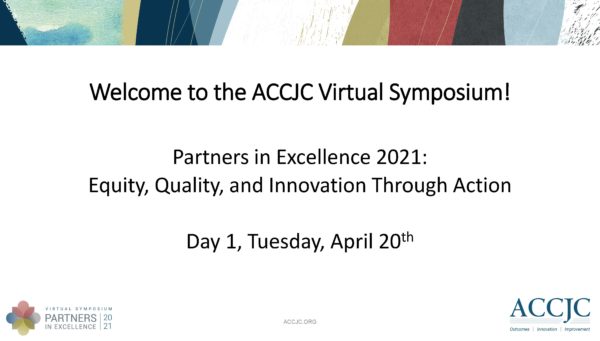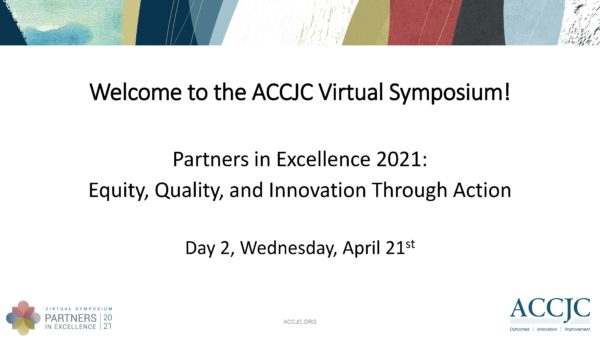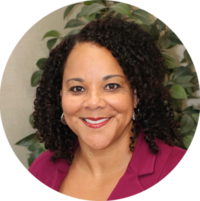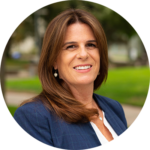
Equity, Quality, and Innovation Through Action
~April 20-22, 2021~
Welcome to Partners in Excellence 2021! Every other year, the ACCJC conference brings together college administrators, institutional researchers, faculty, student services personnel, and other affiliates of the accreditation community who are interested in engaging in partnership to advance educational excellence by improving student learning and achievement. Although we are not able to meet in person this year, I, along with my ACCJC staff colleagues and the Commission’s Educational Programming Committee are very excited to continue the tradition of this gathering as a virtual symposium. Please check out our schedule, presenters, and registration information below. We hope you can join us for one or more of the virtual sessions!
Partners in Excellence 2021: Equity, Quality, and Innovation Through Action will focus on equity and innovation in higher education accreditation. As our colleges and region continue efforts to address equity gaps for students of color in higher education, we are having difficult conversations about race and how those conversations can lead us to take action – in terms of academic quality standards and ensuring that colleges and peer review teams represent the great diversity of our region. In essence, accreditors and institutions must do more to hold ourselves accountable to dismantle structural racism.
Through the Symposium, ACCJC hopes to provide a forum for higher education leaders on their continued path to educational excellence for all students. The program will feature both national and international speakers who are tackling the issues of racial and social justice in higher education and equity-minded education for all students.
Registration Information
Schedule of Speakers
Tuesday, April 20th, 1:00 – 2:30 p.m. PDT
A Moment for the Moral Imagination: The Crucial Role of Centering Race in Reimagining Community Colleges
Speakers:
Dr. Elisha Smith Arrillaga
Executive Director
The Education Trust-West

Dr. Jennifer Taylor-Mendoza
Vice President of Instruction
Skyline College
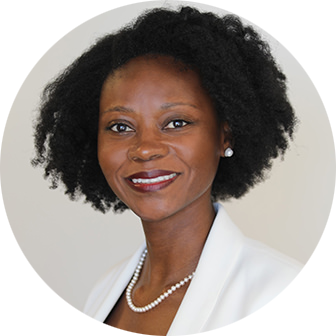
Dr. Daisy Gonzales
Deputy Chancellor
California Community Colleges Chancellor’s Office

More than a year into a once-in-a-lifetime global pandemic, there is much talk of going back to normal. But COVID-19 only exacerbated a “normal” that’s simply unacceptable: a growing economic divide and opportunity gap between the haves and have-nots. The stark reality is that communities of color and people in lower paying jobs (no matter how essential) are bearing the brunt of the pandemic’s health, economic, and educational pain. That’s especially true of higher education students. When Ed Trust West polled students here in California last May, we saw staggering numbers of students, especially students of color and students from lower income communities, struggling. We heard about lack of engagement in coursework, financial pressure, and uncertain housing access. It was common for respondents to wonder if they’d be able to stay on track to graduate if the crisis didn’t abate by mid-summer. We can only imagine how those students—or perhaps now former students—might answer those questions today.
The chasm between haves and have-nots isn’t new; over centuries, systemic racism and inequality have permeated every facet of American life. So even before the pandemic, students of color, first generation college students, and students from lower-income families faced too many barriers to an affordable, quality college education. Even in states with relatively generous tuition aid programs, students still needed better support to graduate on time and meet basic needs such as food, housing, transportation, and childcare. Our students’ brilliance is not correlated with their parents income. But access to opportunity is. Higher education is where we can begin to turn these numbers around. We all know: that for an individual student, a single teacher, one financial aid application, a few more credits toward graduation can be life-changing. Yet last fall, California voters had a chance to restore affirmative action and instead decided that race and gender diversity don’t need explicit promotion. A whopping $550 million in federal and state aid is left on the table each year in California. Students continue to spend time, energy, and tuition on remedial classes and come away without credit toward graduation or a major. But we know that if we are more explicit about one of the main issues that shows up in college classrooms across the state.
Join Elisha Smith Arrillaga, Jennifer Taylor-Mendoza, and Daisy Gonzales as they discuss different examples of how colleges have centered race to make bold changes in teaching, hiring, and their accrediting processes that have led to positive change for students. If ever there was a time for this conversation, the time is now. Today, in the early days of 2021, we find ourselves still roiled with crises, but anticipating some measure of relief. It’s a moment in which higher education institutions can play a vital role in ensuring that we use this moment to begin to build a bold, unified society where we can all thrive together. Such a vision is possible. It’s possible with stronger bridges between the PreK-12 systems and higher education institutions. It’s possible with financial aid access for all. It’s possible with diverse faculties trained to bring out the brilliance in each and every student. It’s possible with race-conscious policy-making. It’s possible by listening to and collaborating with students like never before. We look forward to an engaging conversation on these topics.
Dr. Elisha Smith Arrillaga (she/her/hers) is the Executive Director of The Education Trust-West, the California branch of a national research and advocacy nonprofit organization committed to educational justice for students of color, students from low-income communities, and English learners. As a lifelong math lover, she is fiercely committed to increasing opportunities in STEM for students of color. A researcher by training and advocate by blood, Smith Arrillaga has taught subjects ranging from statistics to writing and research methods at the K-12 and post-secondary levels. She inherits her commitment to racial justice from her family: her father was among the first classes to integrate the University of Mississippi Law School, and her mother fought for anti-discrimination laws across north Mississippi.
Dr. Jennifer Taylor-Mendoza, author of Minding the Obligation Gap in Community Colleges: Theory and Practice in Achieving Educational Equity, holds a Ph.D. in education from Claremont Graduate University. With over twenty years of higher education experience, Dr. Taylor-Mendoza is continually inspired by the brilliance, power, and endless potential of community college students. Her research focuses on the intrinsic resiliency of students of color and institutional approaches to addressing systemic, structural inequities. Dr. Taylor-Mendoza is the Vice President of instruction at Skyline College and serves as the CIO representative to the State Chancellor’s diversity, equity, and inclusion workgroup. She serves on the Board of Directors of the Human Investment Project (HIP) Housing and is an Aspen Presidential Fellow. Her work integrates Student Services and Instruction dismantling structural inequities to create programs responsive to local economic and social needs. Areas of expertise are leadership development, program innovation, community partnerships, and institutional equity reform.
Dr. Daisy Gonzales began her service as an ACCJC Commissioner in 2019. She is the Deputy Chancellor for the California Community College Chancellor’s Office, the state agency responsible for setting policy and guidance for 73 districts and 116 colleges. She coordinates the divisions of Academic Affairs; Student Services and Special Programs; Economic Development and Workforce Preparation; and the Institutional Effectiveness Partnership Initiative (IEPI). She is also responsible for tracking and implementing the Vision for Success, the systems comprehensive plan to improve student outcomes at California’s 116 community colleges. Read more…
Wednesday, April 21st, 1:00 – 3:00 p.m. PDT
Strengthening Community Colleges’ Capacity to Attain Racial Equity in Educational Outcomes
Speaker:
Dr. Estela Mara Bensimon
University Professor and Dean’s Professor in Educational Equity
Founder & Director, Center for Urban Education
USC Rossier School of Education

Community colleges have the privilege of being the most likely pathway to higher education for racially minoritized students. With that privilege comes the responsibility to exercise leadership that is guided by principles of racial equity and anti-racism. Professor Bensimon frames racial equity as a matter of institutional accountability and organizational learning. She maintains that the most practical pathway to recreating colleges to perform more equitably is through tools that enable leaders and practitioners to bring about self-change in thought and action. In her presentation, she will demonstrate the use of the tools that the Center for Urban Education has created over the last 20 years.
Dr. Estela Mara Bensimon is a professor of higher education at the University of Southern California Rossier School of Education and the director of the Center for Urban Education, which she founded in 1999 and which merged on July 1 of this year with the USC Race and Equity Center. To increase equity in higher education outcomes for students of color, she developed the Equity Scorecard, a process for using inquiry to drive changes in institutional practice and culture. Bensimon has also published extensively about racial equity, organizational learning, practitioner inquiry and change. As a result of her efforts, she was elected to the National Academy of Education and was presented with the 2017 Social Justice in Education Award by the American Educational Research Association. Her most recent book, From Equity Talk to Equity Walk: Expanding Practitioner Knowledge for Racial Justice in Higher Education, co-authored with Tia Brown McNair and Lindsey Malcom-Piqueux, was published in 2020. She also serves on the boards of the Campaign for College Opportunity and Complete College America. Dr. Bensimon earned her doctorate in higher education from Teachers College, Columbia University. Read more…
ACCJC reviews (and if needed, revises) its Accreditation Standards every 10 years, in accordance with policy. The review and revision of the 2014 Accreditation Standards is a continuation of ACCJC’s ongoing efforts to advance equitable student success and educational excellence. The Standards Review is also consistent with ACCJC’s core goal of supporting the ongoing learning, improvement, and innovation of its member institutions as they pursue their unique institutional missions, visions and cultures.
ACCJC will facilitate a collaborative and transparent process by working with professionals from the field as the 2025 Standards are drafted. Peer Writing Teams and Peer Reading Teams will work in partnership with ACCJC staff to develop the draft Standards that will be presented to the field for feedback. For those individuals not participating on a Peer Writing or Peer Reading Team, there will be many opportunities to provide feedback throughout the two-year Standards Review Process. Please join us at this session for an update on our progress and check out the ACCJC Standards Review website for more information!
Thursday, April 22nd, 1:00 – 2:30 p.m. PDT
Courageous Conversation – No Better Time Than Now!
Dr. Matthew Farry
Executive Director
Courageous Conversation South Pacific Institute

Reflecting on these turbulent times of a global health pandemic, racial unrest and political polarization, there is no better time than now to have a courageous conversation about race, racism and racial equity in the education system. Once again, we are reminded that if we wish to live our most powerful and empowered lives, we need to acknowledge that race matters, and that racial justice matters even more.
This keynote address will introduce the Courageous Conversations About Race (CCAR) Protocol (the Compass, the Agreements and the Conditions) and Racial Equity Transformation Framework, and examine how they contribute to the movement for racial equity transformation in education and beyond. The insidious and pervasive effects that institutional racism has on social indicators in the education system and beyond will be explored. Finally, this presentation examines the key role that honest, “courageous conversation” about race plays in challenging the devastating impact institutional racism has on education.
Ms. Brooke Gregory has over 25 years of experience as an educator, professional mentor and policy consultant. Her service to students, educators and community included teaching at the middle and high school levels, serving as Dean of Students, Assistant Principal and Principal. At the district level, Brooke was Executive Director of Student Success and Multicultural Services, Executive Director of High School Education, Assistant Superintendent of Human Resources, Assistant Superintendent of Educational Operations and Chief of Strategic Initiatives in Cherry Creek Schools (Denver metropolitan area). Gregory joined Courageous Conversation in 2019 when she was selected by founder and president, Glenn E. Singleton, as his successor (in 2021). Read more…
Dr. Matthew Farry is Executive Director of the Courageous Conversation South Pacific Institute. Launched in 2016 in Aotearoa New Zealand, the Institute is the inspired offspring of a unique partnership between the President of Pacific Educational Group, Founder and Author, Mr. Glenn Singleton and Matthew. Matthew has worked extensively, as a leader, educator and researcher, in the field of migration, settlement, intercultural communication and relations, anti-racism, and equity and inclusion in organizational development. After receiving his doctorate in cultural anthropology from the University of Otago in 2000, he relocated to Lebanon. During his time there, he held positions at the American University of Culture and Education (Director of Communication) and at the Lebanese American University in Beirut (Assistant-Professor in the Division of Social Sciences and Education). Read more…

